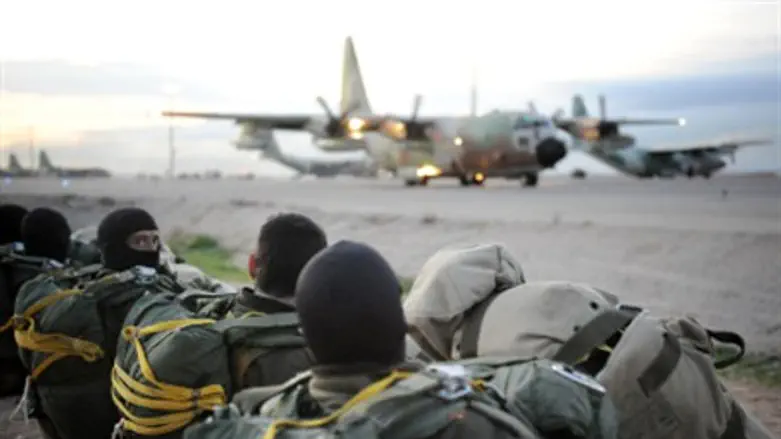
Last week, Israel marked 45 years since the beginning of the 1967 Six Day War, which began on June 5, 1967, when the Israel Air Force launched a preemptive strike against Egyptian forces mobilized in the Sinai Peninsula.
At the time, Hillel Erman was a 30-year-old staff sergeant serving in a reserve unit of the IDF Paratroopers Brigade. Erman sat down with the IDF Website last week, recalling some of his memories of the war.
“I remember it well, like it was yesterday,” Erman said. “I remember when Egypt closed the Straits of Tiran and prevented Israeli ships from entering or leaving Eilat. And I remember when Egypt mobilized its forces in the Sinai Peninsula — and expelled the UN troops that were in the area. The prime minister at the time was Levi Eshkol. He was under tremendous pressure to do something against the threat. The reserves could not stay mobilized forever, nor could they go home in the face of such danger.”
He recalled that “Menachem Begin, who was in the Knesset opposition, joined the governing coalition, which strengthened the resolve of the public. People were very scared. They saw how the Arab nations around us were preparing for war, and we didn’t do anything.”
Erman was called up for reserve duty 18 days before the war started. His brigade practiced in the Ben Shemen forest near Jerusalem “so that no one could see the training. I remember the time there was boring — we didn’t know when the war was going to start, and we just waited.
“The army was pressuring the government to make a decision — either attack or send the soldiers home,” he recalled. “I remember that I was wondering what I should take with me on the plane, since I couldn’t carry much on me with all my parachuting gear. I didn’t know if I should take more clean underwear or more food — I didn’t know what to expect. At some point, my unit was moved to Kibbutz Nahal Oz, on the Gaza border. The Egyptians fired on the Kibbutz and the fields around it caught on fire. Some of the other soldiers in my brigade had lived on kibbutzim before, and they knew how to deal with such things. We all helped to put out the fire.”
Erman continued, “In early June, we were moved near the Egyptian border and were told to wait until someone called us on the secure Red Line and gave us the code for the green light. At 7 a.m. on June 5, we received the call with the secret code — ‘Red Sheet’. We heard that the Israel Air Force bombed the Egyptian Air Force.
“It was a very difficult fight. We were two Paratroopers Brigades and 30 tanks from the 7th Armored Brigade. The battle took place in Rafah, and the Egyptians were hiding in 12 km long ditches. After 24 hours, the battle was over. Out of 600 Israeli soldiers, 30 were killed and 40 were injured. One of the soldiers who was killed was my officer.
“After Rafah,” recalled Erman, “we were sent to Khan Yunis and then to the Suez Canal. On our way to the Suez Canal, two Egyptian planes attacked my brigade on the road. Two soldiers were killed. By the time we arrived at the canal, the war was already over.”
The IDF’s biggest achievement in the war, according to Erman, “was that the IAF targeted Egyptian runways in order to prevent the Egyptian Air Force from taking off. Then, the IAF bombed the Egyptian planes that were stuck on the ground. All in all, our Air Force destroyed an 80 percent of the Egyptian Air Force, which was much stronger than ours at the time.”
After the war, Erman left the army for a while and went to study, eventually joining the army again as a career officer and serving in the Paratroopers Brigade. He retired eight years later with the rank of Lieutenant Colonel and returned to reserve duty.
“I was 19 years old and in active duty during the Sinai Campaign,” he said, recalling some of the other wars in which he took part. “I also participated in the Yom Kippur War and the First Lebanon War. Today, I participate in a lot of charity work, and play soccer every Friday with a group of friends.”
